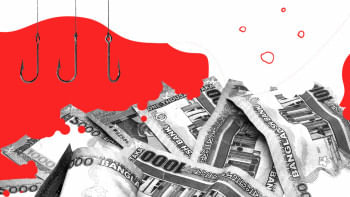Climate funds perpetually stuck in a scam-ridden bank

In yet another harrowing tale of mismanagement and lack of accountability within our banking sector, the fate of crores of public money – allocated for climate change and its adverse effects on the environment and people's livelihoods – hangs in the balance, with no one seemingly concerned about it. Back in 2015, the Bangladesh Climate Change Trust (BCCT) entrusted Tk 538 crore to the then Farmers Bank Ltd with the expectation that this substantial deposit, coupled with accrued interest, would be returned within a year. Fast forward to 2023, and the trust has received a mere Tk 74 crore – only a fraction of the Tk 827 crore due. The situation worsened when Farmers Bank, now Padma Bank, successfully secured an additional eight-year extension from the Ministry of Environment, Forest and Climate Change to repay the money, leaving the BCCT in a perpetual state of waiting. Worse still, the bank reportedly now wishes to pay back the funds at a reduced interest rate of six percent.
The misadventures of Farmers Bank are old news by now. The bank, established in 2013, collapsed in less than three years because of widespread financial irregularities, with more than Tk 3,500 crore being syphoned out of the bank, according to the Bangladesh Bank. It was later bailed out by the four state-owned banks and given a name-lift, but it continues to be riddled by poor management and bad debts. According to the central bank, as of March 2023, Padma Bank had a total outstanding loan of Tk 5,782 crore, of which Tk 3,427 crore were defaulted loans, representing approximately 60 percent of their total debt. It also had a capital deficit of Tk 400 crore.
The saga also raises deep concerns about how public money, entrusted with various trusts, are being used and invested, in the name of the public, in the absence of any accountability mechanism.
In 2015 – the same year that the BCCT made the investment – Bangladesh Bank identified gross violations of banking rules in disbursing loans at the bank, including the involvement of its former directors in the scam. The question that has not been answered in so long is: why did the BCCT deposit its money with such an unstable financial institution in the first place?
As highlighted by Iftekharuzzaman, executive director of Transparency International Bangladesh, it is telling that, despite the issue being discussed in parliament back in 2018, no attempt has been made to hold those who made this controversial investment decision to account. The saga also raises deep concerns about how public money, entrusted with various trusts, are being used and invested, in the name of the public, in the absence of any accountability mechanism. We urge the government and the relevant ministry to launch a full-scale investigation into the issue. Moving forward, they must stop being so lenient towards a scam-ridden bank and hold it to account for its egregious failure to pay back the dues.


 For all latest news, follow The Daily Star's Google News channel.
For all latest news, follow The Daily Star's Google News channel. 









Comments